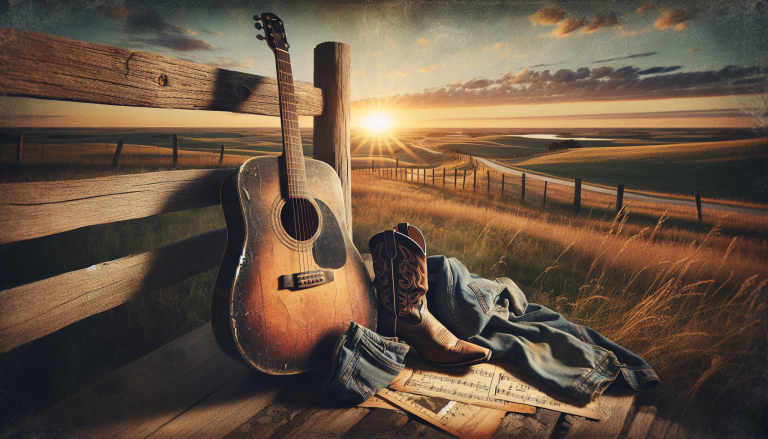The Heartbeat of America: Exploring the Soulful World of Country Music
Roots of a Musical Tradition

Country music is more than just a genre—it’s the heartfelt soundtrack of American life. Emerging from the rural landscapes of the Southern United States, this musical style has captured the essence of human emotion, storytelling, and cultural experience for generations. Born from a rich blend of folk, blues, and traditional Appalachian music, country music represents a profound narrative of American identity.
The origins of country music can be traced back to the early 20th century, when rural musicians began recording their deeply personal stories of love, loss, hardship, and hope. The genre’s earliest roots lie in the folk traditions brought by European immigrants and African American musical influences, creating a unique sound that would become distinctly American.
The Musical Landscape: Defining Country’s Soul
Country music is characterized by its raw emotional authenticity and storytelling prowess. Typically featuring acoustic and electric instruments like guitar, fiddle, banjo, and steel guitar, the genre creates a sound that is simultaneously nostalgic and timeless. The lyrics often explore themes of rural life, romantic relationships, personal struggles, and national pride.
As legendary country artist Dolly Parton once said, “Music is the universal language of the soul.” This sentiment perfectly encapsulates the genre’s ability to connect with listeners on a deeply personal level.
Pioneers and Legends: Shaping the Genre
The evolution of country music is marked by incredible artists who transformed the genre. Hank Williams, often called the father of contemporary country music, revolutionized the sound in the 1940s with his emotional storytelling and distinctive vocal style. His songs like “I’m So Lonesome I Could Cry” remain timeless classics that continue to resonate with audiences.
Johnny Cash, another iconic figure, brought a rebellious edge to country music. His deep baritone voice and songs like “Folsom Prison Blues” expanded the genre’s boundaries, incorporating elements of rock and social commentary. Cash wasn’t just a musician; he was a cultural storyteller who challenged societal norms.
Female artists like Loretta Lynn and Tammy Wynette further enriched the genre, bringing powerful narratives of women’s experiences to the forefront. Lynn’s “Coal Miner’s Daughter” became an anthem of working-class resilience, while Wynette’s “Stand By Your Man” sparked conversations about relationships and gender dynamics.
Modern Innovators: Contemporary Country
In recent decades, country music has continued to evolve. Artists like Garth Brooks brought a more pop-oriented sound that expanded the genre’s appeal, selling millions of albums and filling stadiums. His dramatic performances and crossover hits brought country music to mainstream audiences.
Contemporary artists like Luke Bryan, Miranda Lambert, and Chris Stapleton have continued this tradition of innovation. They blend traditional country sounds with modern production techniques, creating a genre that feels both familiar and fresh.
Musical and Cultural Impact
Country music’s influence extends far beyond entertainment. It serves as a cultural mirror, reflecting the hopes, struggles, and dreams of everyday Americans. The genre has been a powerful vehicle for storytelling, addressing social issues, celebrating rural life, and expressing complex emotions.
The music has also played a significant role in American cultural diplomacy. Country artists often tour internationally, sharing a unique slice of American culture with global audiences. The genre’s authenticity and emotional depth have made it a respected musical form worldwide.
Instruments and Sound: The Technical Heart of Country
The instrumental composition of country music is crucial to its distinctive sound. The steel guitar, with its haunting, sliding tones, creates the quintessential country music atmosphere. Acoustic guitars, fiddles, and banjos provide rhythmic and melodic foundations that give the music its characteristic texture.
Modern country productions often incorporate elements from rock, pop, and even hip-hop, demonstrating the genre’s remarkable adaptability. This musical flexibility ensures that country music remains relevant and exciting for new generations of listeners.
A Living, Breathing Tradition
Country music is more than a genre—it’s a living, breathing tradition that continues to evolve. From its humble beginnings in rural communities to its current status as a global musical phenomenon, country music remains a powerful form of artistic expression.
Each generation of artists adds its own chapter to the genre’s rich narrative, ensuring that country music remains a dynamic and essential part of American cultural heritage. Whether through traditional ballads or modern crossover hits, the music continues to tell stories that touch the human heart.
As the great Willie Nelson once remarked, “Music should always be an adventure.” Country music embodies this spirit of adventure, continually reinventing itself while staying true to its emotional core.
For music lovers seeking authenticity, storytelling, and a genuine connection to human experience, country music offers an unparalleled journey through sound and emotion. It remains a powerful testament to the complexity, resilience, and beauty of the American spirit.